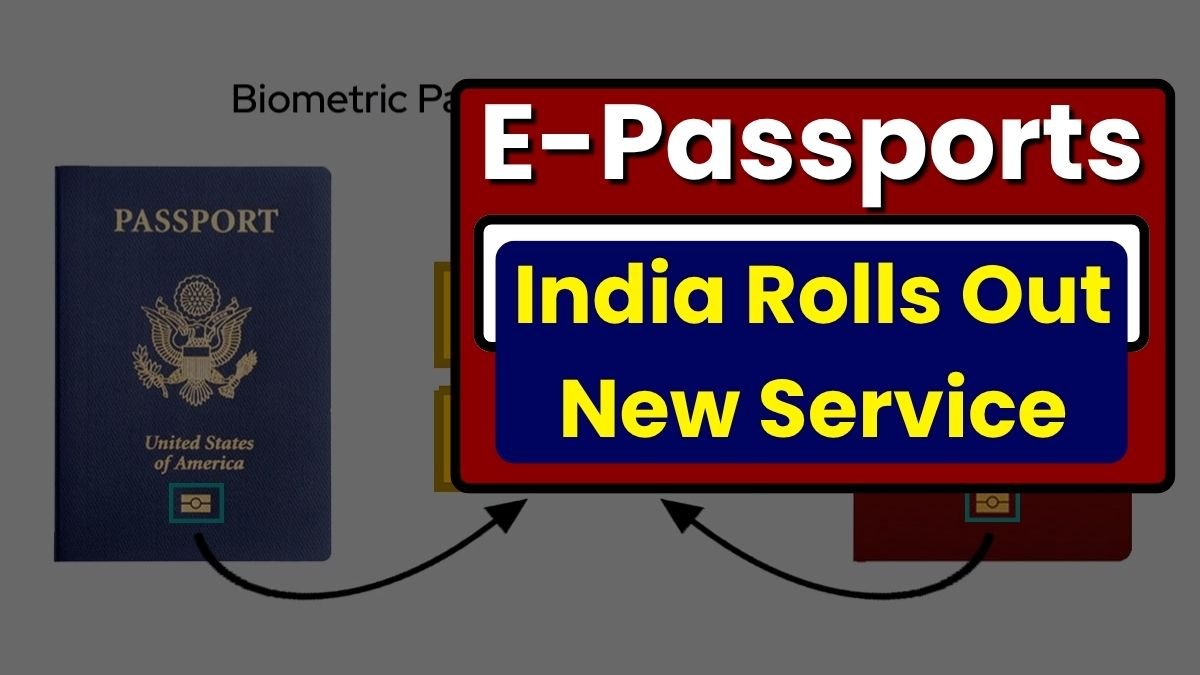Here’s the thing—every time a new travel rule drops, most of us have the same reaction: “Do I need to do something right now?” And if it’s about passports, the stress doubles.
So when India announced that all new passports will now be issued as e-passports, a lot of travellers immediately wondered if they had to rush and replace their old booklet. If that sounds like you, take a breath. Let’s break this down in the simplest, most human way possible.
What Exactly Is an E-Passport?
Think of the new e-passport as your regular passport… but upgraded—like moving from a normal phone to a smartphone.
It still looks like the passport you’ve been carrying for years. The difference is inside.
An e-passport has:
- A tiny RFID chip
- An antenna
- And digitally signed data about you, including biometrics
You’ll notice a small gold symbol on the cover—this is the giveaway that you’re holding an e-passport.
From my experience travelling through busy airports, anything that reduces manual verification is a blessing. And that’s exactly what the chip is meant to do—make your immigration checks smoother and more secure.
Do You Need to Replace Your Old Passport?
Short answer: No. Absolutely not.
Your current passport stays valid until the very last day printed on it.
No airport—Indian or foreign—will reject it.
When you eventually apply for a renewal or new passport, you’ll automatically get the e-passport version. The rollout is happening in phases, so depending on your Passport Office, you might get it immediately or in the coming months.
Why This Upgrade Matters
Let’s be honest—passport fraud has always been a concern worldwide.
Fake passports, identity theft, mismatched photos… we’ve all read those stories.
The e-passport is India’s answer to this problem.
Here’s what changes for you:
- Your data is safer: The chip stores your details in a digitally signed format, which makes tampering nearly impossible.
- Faster immigration: At airports with automated e-gates, the chip allows quick biometric verification.
- Global compatibility: India’s e-passports follow ICAO standards, meaning they work smoothly with border systems worldwide.
It’s a blend of convenience and security, and honestly, it’s long overdue.
How This Helps Law Enforcement and Border Control
This part often gets overlooked, but it’s important.
With e-passports, immigration systems can:
- Automatically authenticate your data
- Detect tampered or forged documents
- Share information faster with security agencies (when legally required)
All of this is powered by Public Key Infrastructure (PKI)—the same technology that protects banking transactions and high-security digital systems.
The Bottom Line
If you already have a passport, relax. You don’t need a new one right now.
But if your renewal is coming up soon, expect a smarter, faster, more secure passport in your hands.
For frequent travellers like me, this is one upgrade that genuinely feels like it will save time—and a lot of unnecessary airport stress.
Frequently Asked Questions
1. Are old passports still valid after the e-passport launch?
Yes. Your existing passport stays valid until its expiry date. You don’t have to replace it until you apply for a renewal or a new passport.
2. Will e-passports speed up airport immigration?
At airports with automated e-gates, yes. The embedded chip allows biometric verification, reducing manual checks and long lines.
3. Is the chip in an e-passport secure?
Very. The data is protected with PKI-based digital signatures, making it extremely difficult to forge or tamper with the information stored inside.




